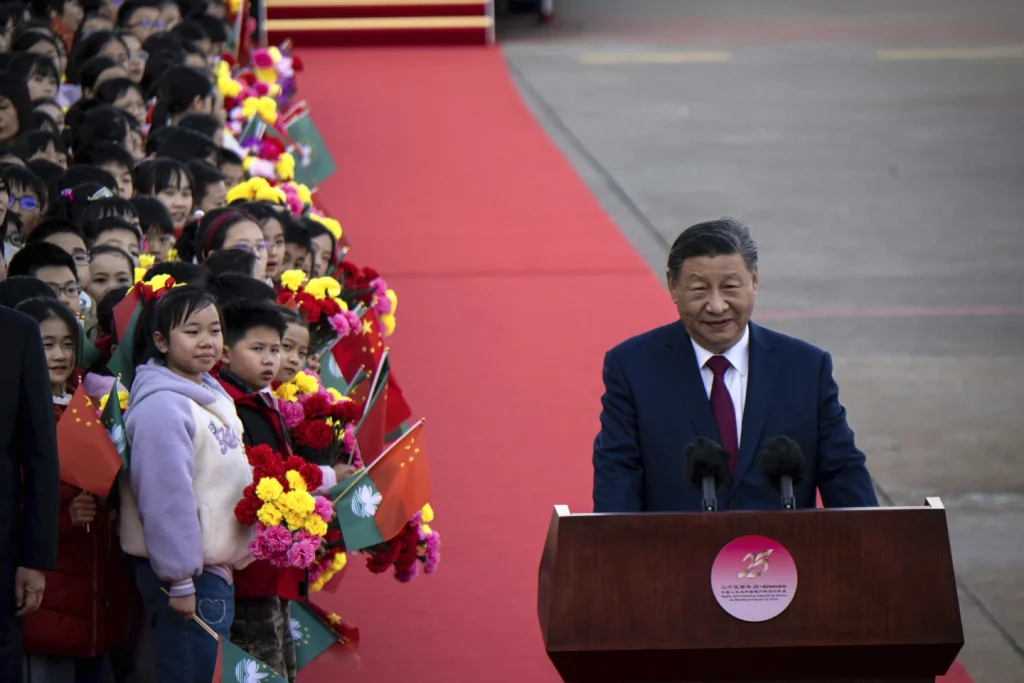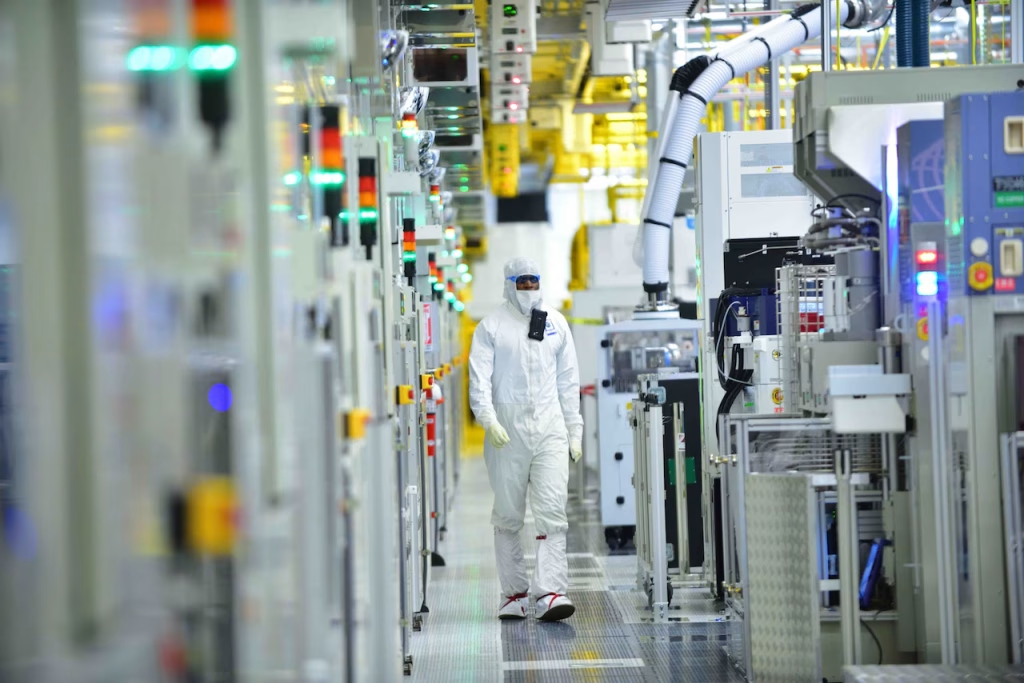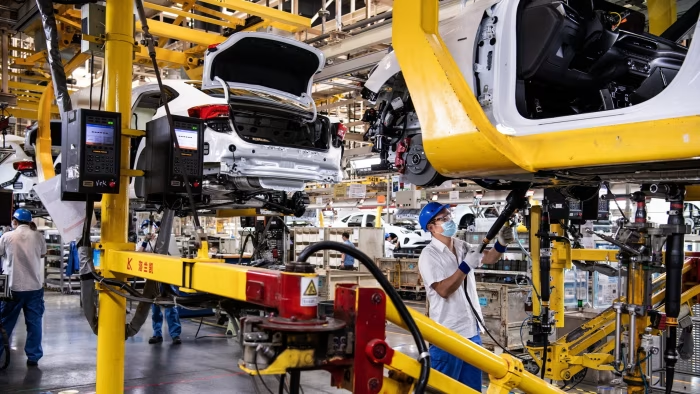Macao’s casino boom brings wealth but at a cost, 25 years since China’s takeover

Macao, often referred to as the “Gambling capital of the world,” is celebrating 25 years since its return to Chinese sovereignty. The region, a former Portuguese colony, has evolved into a glittering hub of wealth and entertainment, largely driven by its booming casino industry. While the casino-driven economic success has generated vast amounts of wealth for the region and its people, the sector also brings with it a complex set of challenges. As Macao marks this milestone, it reflects both on its remarkable economic transformation and the costs associated with its reliance on gaming.
The Rise of Macao’s Casino Industry
Macao’s casino industry has been the engine behind its economic growth for decades. Following the 1999 handover to China, the government opened up the gaming sector to foreign investment, attracting global casino giants like Las Vegas Sands, Wynn Resorts, and MGM Resorts. This move sparked a casino boom that transformed Macao into a world-leading gambling destination. The city now generates more revenue from its casinos than Las Vegas, making it the largest gambling hub in the world.
The influx of foreign operators brought with it billions of dollars in investments, creating jobs and fueling Macao’s economy. The gambling industry rapidly expanded, with luxurious resorts, high-end shopping malls, and entertainment complexes sprouting up along the Cotai Strip, an area once dominated by swamp land. Today, Macao is home to more than 30 casinos, attracting millions of visitors annually, particularly from mainland China, where gambling is heavily restricted.
This unprecedented growth has resulted in extraordinary wealth for the region. Casino revenues account for more than 50% of Macao’s GDP, contributing significantly to the region’s prosperity. The sector has also played a critical role in improving the living standards of residents, providing employment opportunities across a range of industries, from hospitality to construction.
Economic Success Comes at a Price
However, Macao’s reliance on the casino industry has created a set of challenges that cannot be ignored. The economy is deeply dependent on gambling, and this dependence leaves the region vulnerable to fluctuations in the global and regional economy. A downturn in the gambling sector, whether due to regulatory changes, shifts in consumer behavior, or broader economic factors, can have far-reaching consequences for Macao’s financial stability. The region’s over-reliance on gaming revenues has been particularly evident during times of economic uncertainty, such as the 2014 anti-corruption campaign in China, which saw a steep decline in high-rolling mainland Chinese gamblers visiting Macao’s casinos.
Another concern tied to Macao’s casino boom is its impact on the local population. The rapid expansion of the gaming industry has led to soaring real estate prices and cost of living, creating a widening wealth gap. While the casino industry has undoubtedly created a great deal of wealth, much of this wealth has been concentrated in the hands of large casino operators and wealthy investors, leaving many residents struggling to afford the high cost of living.
Income inequality has become a growing issue, as many workers in the casino sector earn modest wages, often in low-skill jobs. The situation has led to calls for more inclusive economic growth and a more equitable distribution of the wealth generated by the casino industry.
Social and Environmental Impacts
The gambling boom has also brought social and environmental consequences. In a city where gambling is a dominant part of the economy, gaming addiction has become a significant social problem. Macao has one of the highest rates of gambling addiction in the world, and many individuals face financial ruin as a result of their addiction to casinos. The government has responded with initiatives to combat problem gambling, but critics argue that these measures have not been enough to address the deep-rooted issues.
Macao’s rapid urbanization and the massive development associated with its casino boom have also contributed to environmental degradation. The Cotai Strip, once marshy land, was transformed into a sprawling concrete jungle of casinos, hotels, and shopping malls. The region’s infrastructure, such as roads and public transportation systems, has struggled to keep pace with the rapid growth, leading to overcrowding and pollution. Despite these challenges, efforts to promote sustainability have been limited, and the region’s environmental footprint continues to grow.
The Role of China in Macao’s Future
As Macao celebrates 25 years under Chinese rule, the role of China in shaping the region’s future remains a key point of discussion. Since the handover, Macao has enjoyed a high degree of autonomy, with its own legal system, economy, and governance structure. However, Beijing has increasingly taken a more active role in the territory’s affairs, particularly in regulating the casino industry.
In recent years, the Chinese government has introduced measures aimed at curbing the influence of gambling, particularly high-stakes gambling. This includes crackdowns on money laundering and stricter regulations on casinos catering to VIP gamblers. The Chinese government has also implemented policies to reduce Macao’s dependence on gaming by promoting diversification into other sectors such as tourism, entertainment, and financial services.
Macao’s authorities have embraced this push for diversification, seeking to develop new industries that will help reduce the territory’s reliance on casinos. For example, the government has invested heavily in promoting Macao as a hub for international conventions and cultural events, hoping to attract tourists who are not necessarily interested in gambling. The region is also exploring the potential of its financial services sector and has taken steps to position itself as a bridge between China and the global financial system.
While these efforts to diversify Macao’s economy are seen as important for the region’s long-term stability, there is still considerable uncertainty about the pace and success of these efforts. The casino sector remains the dominant force in Macao’s economy, and it is unclear how quickly the region can transition to a more balanced economy without jeopardizing its economic security.
A Sustainable Future?
As Macao moves into its next chapter, the question remains whether the region can strike a balance between sustaining its booming casino industry and addressing the social, economic, and environmental challenges it faces. The future of Macao’s economy will depend on its ability to diversify beyond gaming, improve social welfare, and reduce income inequality, all while continuing to attract high-spending tourists and investors.
The key to Macao’s future success may lie in finding a way to promote sustainable development. This could involve enhancing the region’s infrastructure, improving environmental standards, and investing in education and healthcare to ensure that the benefits of economic growth are felt across all segments of society.
While Macao’s casino boom has undeniably brought immense wealth and prestige to the region, it has also highlighted the complex realities of relying so heavily on one industry. As the region looks to the future, it will need to navigate these challenges carefully to ensure that the next 25 years bring continued prosperity, but also greater social equity and environmental sustainability.






